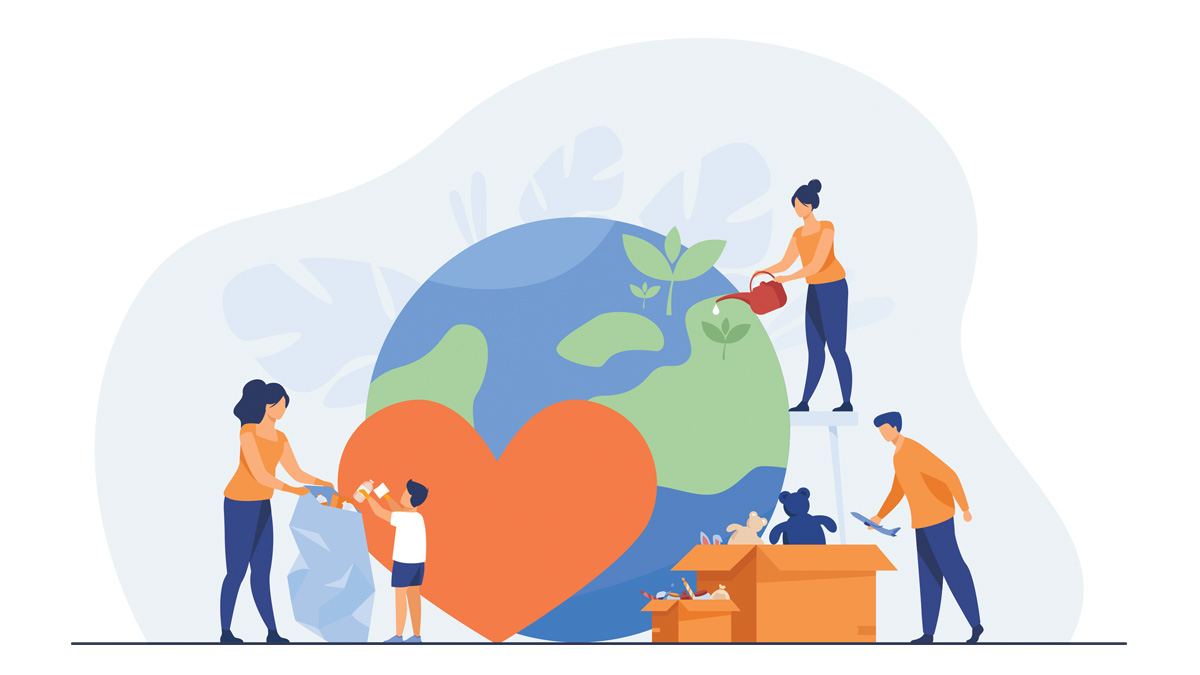Lo que sembremos en la juventud lo vamos a cosechar en nuestra vida de adultos
La juventud es una etapa única en la vida de cada persona, como cualquiera que pasamos y pasaremos, sin embargo, la juventud tiene un toque muy especial, pues es cuando tenemos más vigor, más ganas de comernos el mundo y somos más intencionados en ir contra la corriente por querer buscar nuestra identidad y el camino a nuestro propósito.
La juventud es un camino de aprendizaje, en el que podemos saber más o también desmoronarnos, básicamente lo que sembremos en esta etapa lo vamos a cosechar en nuestra vida de adultos.
La juventud a veces parece nuestra enemiga porque pensamos que si no logramos nada ahorita ya no podremos después; sentimos que esto es una carrera, que entre más logros o metas cumplidas ahorita alcanzaremos una plenitud después y la verdad es que pocas veces es así.
También parece que la juventud es nuestra enemiga en cuestión de tiempo, ya que ponemos fechas límites a planes futuros y si no se cumplen creemos que ya no se podrá, pero el límite lo ponemos nosotros no el tiempo.
La ola del humanismo
Hoy en día nos rodean tantas mareas y no sabemos cuál seguir o con cual nos sentimos identificados, pero hay algo como jóvenes creyentes que pasa cada vez que nos dejamos guiar por la ola del humanismo (consciente o inconsciente), es que sólo necesitas de ti para sacar lo mejor y ¿sabes?, sí, sí necesitamos de nosotros, pero también de otros, porque somos un alma que necesita de un espíritu y nuestro espíritu no tiene la habilidad de auto actualizarse por que no conoce sus funciones y eso impide que pueda nutrir nuestra alma, hay que recordar que tenemos un creador que conoce cada extremidad de nosotros y sólo él puede reforzar y mejorar nuestro ser por completo.
Sí vivamos nuestra juventud tratando de cumplir los anhelos, sueños y metas que tanto deseamos, pero no olvidemos el corazón de Dios, los planes para nosotros, el propósito que él diseñó para que nosotros lo cumplamos, porque esa es la verdadera razón de nuestra existencia y cuando realmente entendemos esto podemos encontrar más sentido a nuestra vida, vivir en paz y tener satisfacción en nuestros grandes, pequeños y fallidos logros.
“Pues yo sé los planes que tengo para ustedes –dice el Señor–. Son planes para lo bueno y no para lo malo, para darles un futuro y una esperanza”
Jeremías 29:11
Future and hope
What we sow during youth, we will reap as adults
Youth is a unique stage in life. Youth has an exceptional touch because it is when we have more vigor and desire to eat the world, and we are more intentional in going against the current for wanting to find our identity and the path to our purpose.
Youth is a path of learning. We will reap what we sow at this stage in our adult life.
Youth sometimes seems to be our enemy because we think that if we do not achieve anything now, we will not be able to later; we feel that this is a race, that the more achievements or goals we accomplish now, the more fulfillment we will achieve later, and the truth is that this is rarely the case.
It also seems that youth is our enemy when it comes to time since we set deadlines for plans, and if they are not fulfilled, we believe that we will not be able to achieve them, but we set the limit, not time.
The wave of humanism
Nowadays, we are surrounded by so many tides, and we do not know which one to follow or identify with which one we feel. Still, there is something as young believers that happens every time we let ourselves be guided by the wave of humanism (conscious or unconscious), is that you only need to get the best, and you know? Yes, we need ourselves, but we also need others because we are a soul that needs a spirit. Our spirit cannot update itself because it does not know its functions, and that prevents it from nurturing our soul; we must remember that we have a creator who knows every extremity of us and only he can strengthen and improve our being ultimate.
Let’s live our youth trying to fulfill the longings, dreams and goals we so desire, but let’s not forget the heart of God, the plans for us, and the purpose he designed for us to fulfill because that is the valid reason for our existence. When we understand this, we can find more meaning in our life, live in peace and have satisfaction in our significant, small and failed achievements.
“For I know the plans I have for you,” says the Lord. They are plans for good and not evil, to give you a future and a hope.”
Jeremiah 29:11

